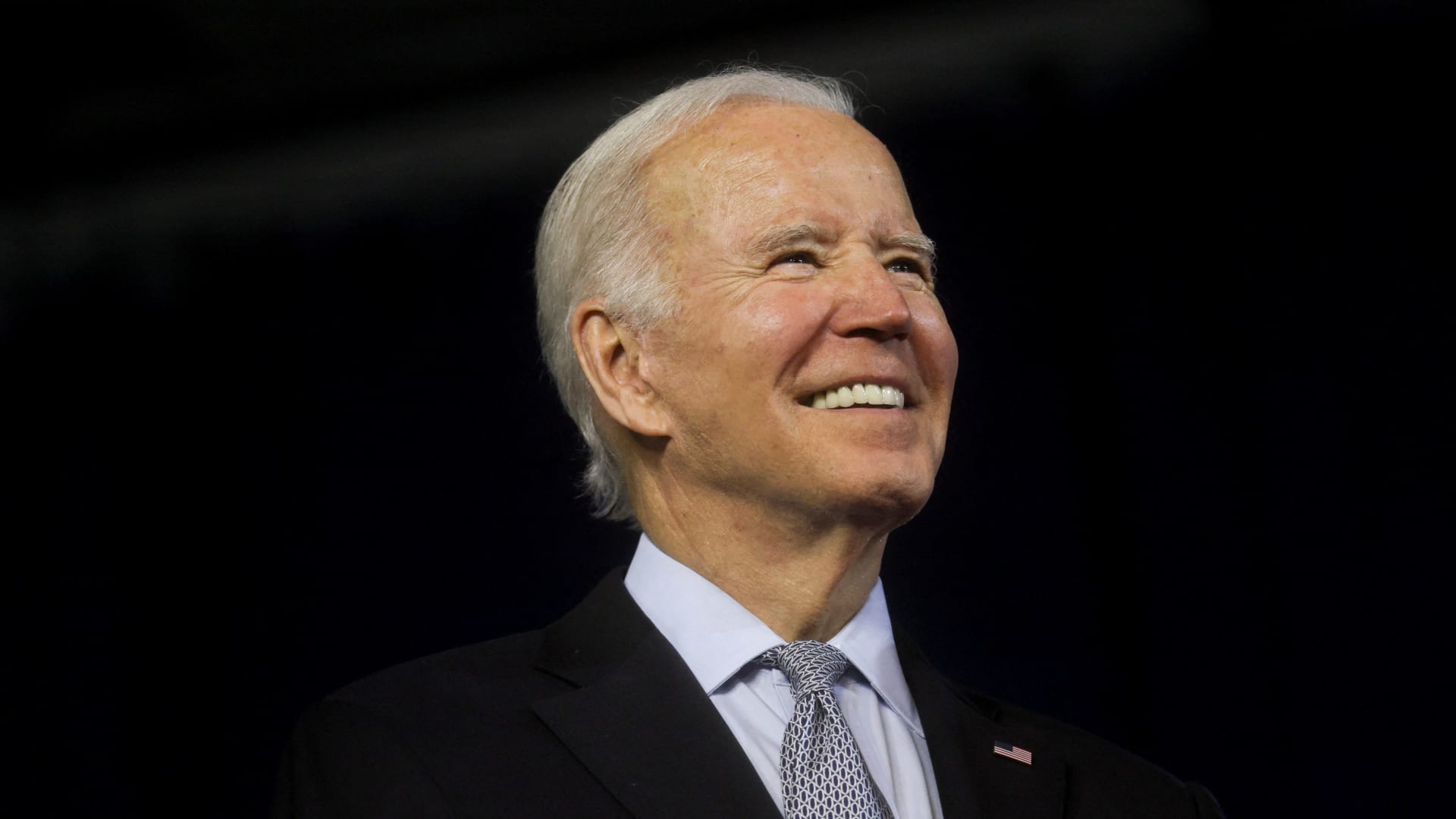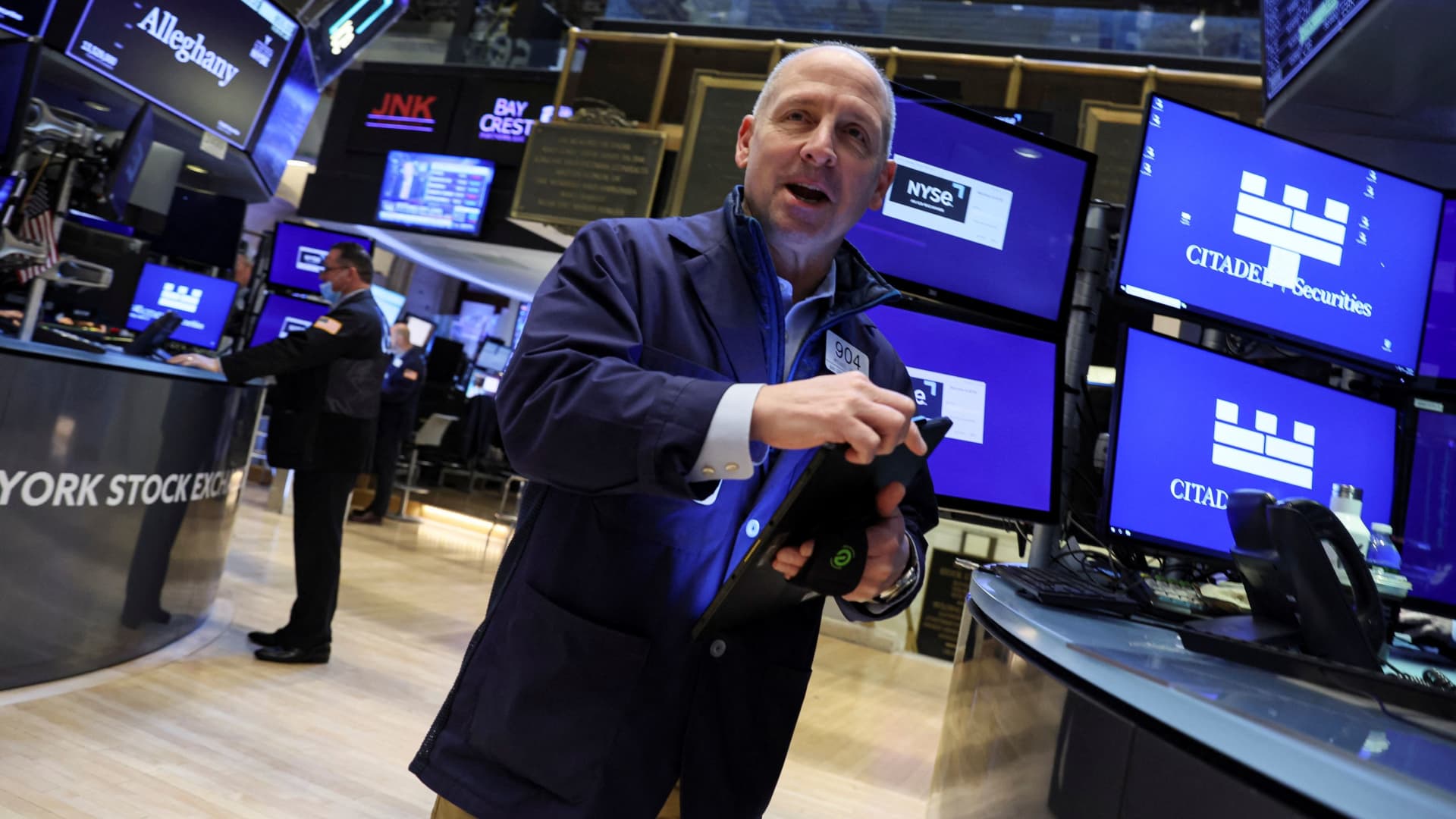Midterm results are looking increasingly sunny for Biden as he touts 'strong night' for Democrats
U.S. midterm elections are a rebuke of the party in office, but despite economic concerns and Biden's low approval rating, Democrats avoided major losses.

Initial midterm election results are rosier than expected for Democrats, who appear poised to buck historical trends and avoid major losses in Tuesday's races.
President Joe Biden told reporters ahead of Election Day that he was "optimistic" for Democrats. He hedged that he's "always optimistic," even in the face of projections that Republicans would take a commanding House majority and could wrest Senate control from Democrats as voters grappled with decades-high inflation. Biden reminded reporters of his confidence in post-election remarks Wednesday at the White House.
"I know you were somewhat miffed by my obsessive optimism but I felt good through the whole process, I thought we'd do fine," Biden said. "While any seat lost is painful, some good Democrats didn't win last night, Democrats had a strong night."
As results are reported across the country Wednesday, it appears Biden was right to be hopeful.
"It's the most successful midterm for a Democratic president probably in history and certainly since the Second World War," said Jeffrey Sonnenfeld, senior associate dean for leadership studies at the Yale School of Management. "They still might lose control of both houses, but it's hardly the 'red wave' that was being marketed in the media."
U.S. President Joe Biden smiles during a rally with Democratic nominee for Maryland Governor Wes Moore, U.S. Senator Chris Van Hollen and other Maryland Democrats, at Bowie State University in Bowie, Maryland, U.S., November 7, 2022.
Leah Millis | Reuters
In the weeks leading up to Election Day, Biden pleaded with voters to make the midterms a "choice" for democracy and abortion rights rather than a "referendum" on his first term. Modern U.S. midterm elections held after a new administration are almost always a rebuke of the party in office, but despite economic concerns and the president's low approval ratings, Democrats avoided major losses, said Jess O'Connell, a Democratic operative and founder of NEWCO Strategies.
"While Democrats may ultimately lose the House, it will likely be by much less than Republicans would want," O'Connell said. "The results so far don't seem like a repudiation of Biden's presidency, in fact, the opposite. By all accounts so far, close results like this are really a win for Biden and Democrats given the heavily redistricted maps and economic headwinds they've been navigating coming into these midterms."
The president accomplished many of his campaign promises in his first two years in office, even checking off items like capping the price of insulin that Democrats had tried to accomplish for years. Under Biden's watch, Congress passed laws that aimed to address climate change, provided Covid-19 relief funds and invested $1 trillion in infrastructure.
He also appointed the first Black woman to the Supreme Court and has been a leader on the world stage amid Russia's invasion of Ukraine. In addition, through executive action, Biden pardoned federal offenders convicted of "simple marijuana possession" and made good on his promise to forgive $10,000 worth of federal student loan debt for eligible borrowers, though that policy has been held up by legal challenges.
Pundits had predicted these wins would be overshadowed in voters' minds by economic concerns as inflation, which the White House initially said would be transitory, became entrenched and rose to a four-decade high, pinching pocketbooks and increasing talk of a recession in the near future. The national average price for a gallon of gas was $3.80 on Election Day, according to AAA. That's down from the all time high of $5 set in June, but still above the $3.42 average during the year-earlier period.
Biden acknowledged these issues in his speech Wednesday.
"Voters spoke clearly about their concerns about rising costs and the need to get inflation down," Biden said. "About crime and public safety. They sent a clear and unmistakable message that they want to preserve our democracy and protect the right to choose in this country."
Nearly every poll leading up to Election Day showed voters listing inflation and the economy as their top concerns, but preliminary results show those issues didn't completely eclipse fears around abortion rights and democracy.
"The story of 2022 is that the [Wade v. Roe abortion] decision did a lot to close the enthusiasm gap we were seeing a year ago," said Sarah Longwell, a Republican strategist and publisher of the conservative-leaning publication The Bulwark. "There was lots of Republican enthusiasm which led to a big turnout and Democrats were able to match that largely because of the Dobbs Supreme Court decision. From there, it became a dogfight for moderates and swing voters. Ultimately candidate quality really was the decisive factor and abortion is woven into that."
Longwell said that when she conducted focus groups, certain voters would talk about their concerns about the economy, inflation and crime, but they would still opt for the Democratic candidate because they were concerned the Republican choice was too extreme and they used the candidate's stance on abortion as justification for their decision.
"Yes, people are down on Biden, they're down on the economy, they're saying these things at the top, but when I ask them about what they're voting on they say abortion," she said. "For Republicans, it's a candidate problem and that's thanks to Donald Trump."
While the president's approval rating fell from a high of 51% in NBC News' poll in April 2021, Biden sat close to where the previous two presidents found themselves at this point in their first term. In the most recent NBC News poll released Sunday, Biden's approval rating stood at 44%, compared with 46% for Donald Trump and 45% for Barack Obama in their final NBC News/Wall Street Journal polls taken before the midterm elections.
Early results, though, show Democrats far outpacing historic trends. With the exception of former President George W. Bush, the party of every president since former President Bill Clinton has lost between 40 and 60 seats in the House in the following midterm election.
"There's no rebuke to Biden in any of these numbers. They could have been more triumphant, but no rebuke," Sonnenfeld said. "The White House should have celebrated the very low unemployment and not have fallen into the trap of having that defined as the source of inflation because there's zero data to support that."

 ValVades
ValVades 































